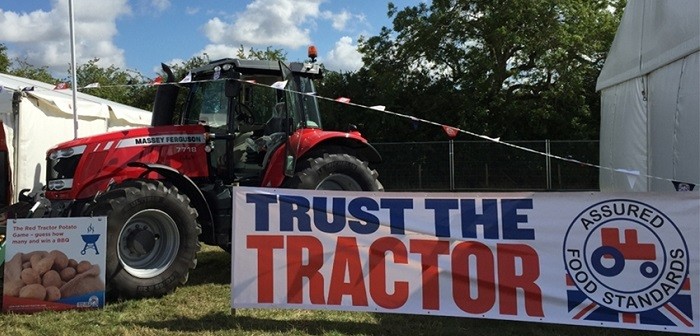Red Tractor is reminding pig producers of changes to the pork scheme standards coming into force in October.
The changes follow the latest three-yearly scheme review by the Red Tractor committee of farmers, retailers, vets and other industry experts to ‘ensure assured food is produced in a way that consumers value and demand’.
eMb-Pigs: One of the headline amendments is the requirement for producers to upload total antibiotic use to the electronic medicine book (eMB-Pigs) on a quarterly basis within six weeks of the end of each quarter. From November 11, scheme members will need to have entered data from the second and third quarters of 2017. Data for 2015 covering about two-thirds of the national herd has already been reported online, according to AHDB Pork figures.
Responsible use of medicines: In addition to the e-MB requirement, all vets treating assured herds must be members of the Pig Veterinary Society. Vets are required to sign a quarterly declaration to confirm they are prescribing antibiotics in accordance with the PVS Prescribing Principles for Antimicrobials. Class 3 antibiotic use must be justified in the veterinary health plan.
Notching: Routine multiple ear notching is not allowed. The practice can only be used as a last resort in pedigree breeding where pig colouring prevents tattooing and only with a recommendation from a vet.
Rodenticide use: Vermin control has been strengthened to allow assured producers to continue to buy professional rodenticides without the need and cost of further training. Permanent baiting must not be routinely undertaken and baits can only be sited where evidence shows they are being continuously effective. A site survey and risk assessment of watercourses and populations of non-target species should also be carried out and recorded before treatment.
Imported stock and semen testing: Imported stock and semen must be tested in line with the NPA’s Imports Protocol for non-statutory diseases, with a statement signed by a vet.
Biosecurity: The farm’s biosecure areas must be defined on a map and all visitor entry points must have disinfectant foot dips or boot cleaners. Staff and visitors must wear clean clothes and footwear in biosecure areas of the farm.
Supplementary rearing accommodation: If a piglet has to be removed from the sow for its own welfare before 21 days, a vet must confirm that the management of any supplementary rearing accommodation is satisfactory.
Feed and water: An action plan needs to be created for dealing with unweaned piglets over two weeks of age where the sow’s milk may not satisfy the piglets’ water needs and where water is not continuously available. In growing and finishing units, drinkers integral to a wet and dry feeding system are not counted as a separate water source. Non-mains water must be independently tested every year.
Environment: The environmental protection section has no significant changes but is now more appropriate for livestock farmers and has been divided in to two areas; the responsible use of agri-chemicals and nutrient management.
- Pig producers will be receiving copies of the scheme’s revised assurance standards in July.




